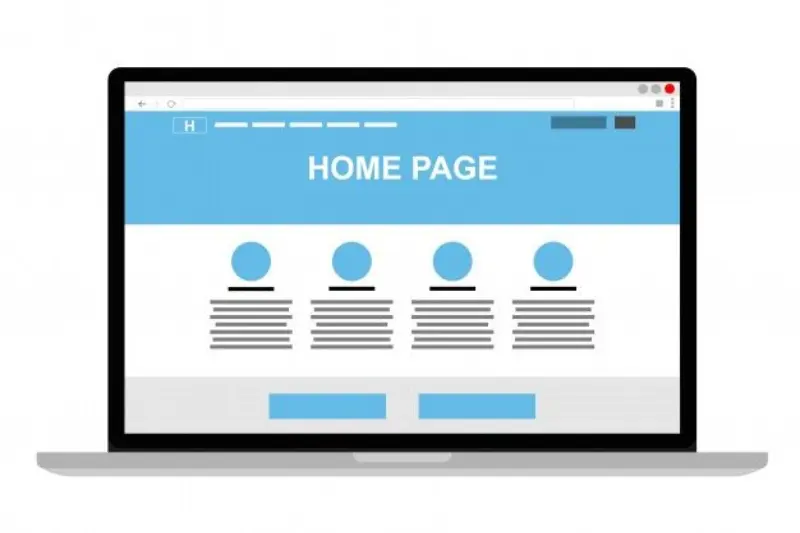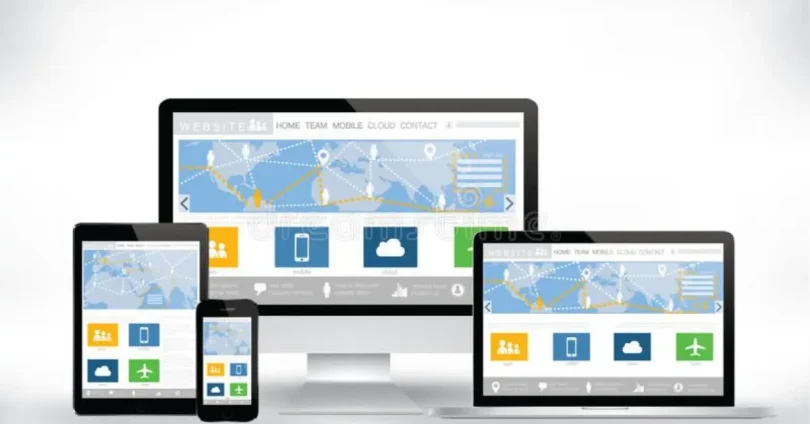Want to create a website but don’t know where to start? For beginners, building a website can feel overwhelming with all the coding, design, and hosting decisions involved. Luckily, website builders make it simple.
These tools allow anyone to create professional-looking websites without any coding experience. With drag-and-drop editors, ready-made templates, and built-in features, you can set up a blog, portfolio, business site, or online store quickly and efficiently.
In this article, we’ll cover website builders for beginners explained, including tips, pros and cons, and the best options available in 2025 to help you get started confidently.
Why Website Builders Are Ideal for Beginners

Creating a website used to require extensive coding knowledge and design skills. Today, website builders have completely changed that, making it possible for anyone to create a professional website with ease.
No Coding Required
One of the biggest advantages of beginner-friendly website builders is that you don’t need to know any programming languages. Most builders use drag-and-drop editors, allowing you to move elements, add text, images, and videos, and design pages visually without touching a single line of code.
Quick Setup
Website builders allow you to launch a website in just a few hours. With ready-made templates and pre-designed sections, you can have a fully functional website live quickly, which is perfect for students, small business owners, or anyone looking to establish an online presence fast.
Affordable or Free Plans
Many website builders offer free or low-cost plans, making them accessible for beginners. Free plans are often sufficient for personal blogs or small projects, while paid plans provide additional features like custom domains, e-commerce capabilities, and advanced templates.
Using these tools, beginners can focus on content and creativity instead of technical hurdles, making the website-building process straightforward and stress-free.
Key Features to Look For in a Website builders for beginners explained
When choosing a website builder as a beginner, it’s important to focus on features that make the process simple, efficient, and professional. Here are the key features to consider:
Easy-to-Use Templates and Drag-and-Drop Editor
Templates allow you to start with a professional design without creating one from scratch. A drag-and-drop editor makes it easy to move elements, add images, text, buttons, and videos exactly where you want them, giving your site a polished look effortlessly.
Mobile Responsiveness
More people access websites on mobile devices than ever before. Make sure your website builder automatically creates mobile-friendly versions of your site, so it looks great and functions well on smartphones and tablets.
Customizable Design Options
Even though templates are helpful, customization is important to make your website unique. Look for builders that allow you to change colors, fonts, layouts, and add your branding elements easily.
Reliable Hosting and Domain Support
Some website builders include free hosting and the option to connect a custom domain. Reliable hosting ensures your site loads quickly and stays online, while a custom domain makes your website look professional and trustworthy.
SEO Tools and Basic Analytics
SEO (Search Engine Optimization) tools help your website appear in search engines, making it easier for people to find your content. Basic analytics let you track visitor behavior, page views, and engagement, which is essential for improving your site over time Website builders for beginners explained.
Website builders for beginners explained By ensuring your website builder has these features, beginners can create a functional, professional, and attractive website without frustration or technical knowledge.
You may also like to read these posts:
Simple DIY Home Projects List for Beginners You’ll Love
DIY Home Projects Types and Ideas for Every Beginner
Easy Craft Ideas to Do at Home for Fun and Creativity
Unique and Creative Gift Ideas for Friends & Family
Best Website Builders for Beginners (2025 Edition)
Wix – Best for Flexibility and Design Freedom
Wix is a highly popular website builder that gives beginners full creative control. With hundreds of customizable templates and a simple drag-and-drop editor,Website builders for beginners explained you can design a unique website without coding. Wix also offers advanced features like animations, galleries, and app integrations for added functionality.
Pros: Highly customizable, easy to use, extensive template library.
Cons: Free plan includes Wix branding; may require paid plan for full features.
Best for: Beginners who want complete design freedom and flexibility.
Squarespace – Best for Stylish Templates
Squarespace is known for its visually stunning templates, making it ideal for creatives, portfolios, and small businesses. Its drag-and-drop editor is intuitive, and built-in features like blogging, e-commerce, and analytics make it an all-in-one platform.
Pros: Professional-looking templates, all-in-one platform, reliable hosting.
Cons: Slightly higher cost than other beginner-friendly builders; learning curve for advanced features.
Best for: Users who prioritize aesthetics and sleek design.
Weebly – Best for Simple Drag-and-Drop Building
Weebly offers a straightforward website building experience with its drag-and-drop editor.Website builders for beginners explained It’s perfect for beginners who want to quickly create a website without being overwhelmed by complex options. It also supports e-commerce and blogging.
Pros: Easy to use, quick setup, good for small websites.
Cons: Less flexibility for advanced design; templates are somewhat basic.
Best for: Beginners who want simplicity and speed.
WordPress.com – Best for Blogging and Scalability
WordPress.com is ideal for blogging and content-focused websites. Beginners can start with free themes and gradually expand with paid plans for custom domains, plugins, and advanced features.Website builders for beginners explained Its scalability makes it a long-term solution for growing websites.
Pros: Highly scalable, great for blogging, large support community.
Cons: Limited customization on free plan; may need time to learn the platform.
Best for: Bloggers and beginners planning long-term growth.
Zyro – Best for AI-Assisted Website Creation
Zyro offers AI-powered tools that simplify website creation, including AI content generation and layout suggestions. Its drag-and-drop interface and pre-made templates make it easy for beginners to launch a professional website quickly.
Pros: AI tools speed up content creation, beginner-friendly, affordable.
Cons: Fewer advanced customization options compared to Wix or Squarespace.
Best for: Beginners who want AI assistance for faster website setup.
Shopify – Best for Small Online Stores
Shopify is the go-to website builder for e-commerce beginners. Website builders for beginners explained It provides all-in-one solutions for product listing, payment processing, and order management. Its beginner-friendly interface allows users to set up online stores without coding knowledge.
Pros: Powerful e-commerce tools, easy to manage, scalable.
Cons: Monthly fees can be high; limited creative design flexibility.
Best for: Entrepreneurs and beginners looking to start an online store.
How to Choose the Right Website Builder
Choosing the right Website builders for beginners explained is crucial for creating a website that meets your goals without unnecessary frustration. Here’s how beginners can make the best choice:

Define Your Website’s Purpose
Before selecting a builder, identify what type of website you want. Are you creating a blog, portfolio, business site, or online store? Knowing your purpose helps narrow down options and ensures the builder offers features tailored to your needs.
Compare Ease of Use, Pricing, and Features
Different builders offer varying levels of simplicity, customization, and cost. Compare drag-and-drop ease, available templates, mobile responsiveness, hosting options, and any additional features. Make sure the builder aligns with your skill level and budget.
Test Free Trials Before Committing
Most website builders offer free plans or trials. Take advantage of these to explore the platform, test its tools, and see if it matches your workflow.Website builders for beginners explained This prevents frustration later and helps you choose a builder you feel comfortable using long-term.
By following these steps, beginners can select a website builder that saves time, reduces stress, and allows them to create a professional-looking site efficiently.
Pro Tips for Beginners Using Website Builders
Even with beginner-friendly tools, following a few practical tips can make your website more effective, professional, and easy to manage.
Start Small
Focus on creating the essential pages first, such as Home, About, Services/Products, and Contact. Launching with a simple structure allows you to get your website live quickly and gradually expand it over time.
Use Templates but Customize Branding
Templates are great starting points, but make sure to add your personal touch. Customize colors, fonts, logos, and layouts to match your brand or personal style. This ensures your website looks unique and professional.
Optimize Images and Content for Speed and SEO
Large image files can slow down your website, affecting user experience and search rankings. Use compressed images and optimize content with relevant keywords to improve load times and SEO performance.
Regularly Update Your Website and Check Analytics
Keep your website fresh by updating content, adding new posts or products, and maintaining pages. Use built-in analytics tools to monitor traffic, engagement, and visitor behavior, which helps improve your site over time.
By following these tips, beginners can create a website that looks professional, performs well, and grows along with their goals.
Common Mistakes Beginners Make
Even with beginner-friendly website builders, certain mistakes can slow down progress or reduce the effectiveness of your site. Here are the most common pitfalls to avoid:
Overcomplicating Design with Too Many Features
Adding too many features, widgets, or animations can make your website look cluttered and confusing. Focus on simplicity and usability, ensuring visitors can easily navigate your site and find key information.
Ignoring Mobile Optimization
Many beginners overlook how their website appears on smartphones and tablets. Mobile-friendly design is essential, as most users access websites via mobile devices. Always preview your site on multiple devices before publishing.
Not Planning Content Structure in Advance
Jumping into design without a clear content plan can result in disorganized pages and confusing navigation. Outline your pages, menus, and sections beforehand to ensure a smooth user experience and logical flow.
By avoiding these mistakes, beginners can create a clean, professional, and user-friendly website that performs well and engages visitors effectively.
FAQs About Website Builders for Beginners
Do I need coding skills to use a website builder?
No, most website builders are designed for beginners and use drag-and-drop editors. You can create professional websites without any coding knowledge.
Can I switch website builders later?
Yes, you can switch, but it may require exporting your content and redesigning certain elements. Choosing a builder with easy migration options can make the process smoother.
Are free plans enough for small websites?
Free plans are often sufficient for personal blogs, portfolios, or small projects. However, for custom domains, advanced features, or e-commerce, paid plans may be necessary.
Which website builder is best for e-commerce?
Shopify is the most beginner-friendly option for online stores. Wix and Squarespace also support e-commerce features for small businesses and side projects.
How long does it take to create a website with a builder?
Depending on the complexity and content, beginners can create a basic website in a few hours to a couple of days. Templates and drag-and-drop editors speed up the process significantly.
Conclusion
Website builders have made it easier than ever for beginners to create professional websites without coding skills. With drag-and-drop editors, customizable templates, and built-in features, anyone can launch a blog, portfolio, business site, or online store quickly and efficiently.
The key is to choose a builder that matches your website’s purpose, explore its features through free trials, and follow best practices for design, content, and mobile optimization. By avoiding common mistakes and using pro tips, beginners can create a website that looks professional, functions smoothly, and grows alongside their goals.
Whether you’re starting your first website or looking to improve an existing one, these tools provide the guidance and flexibility you need to succeed online.








